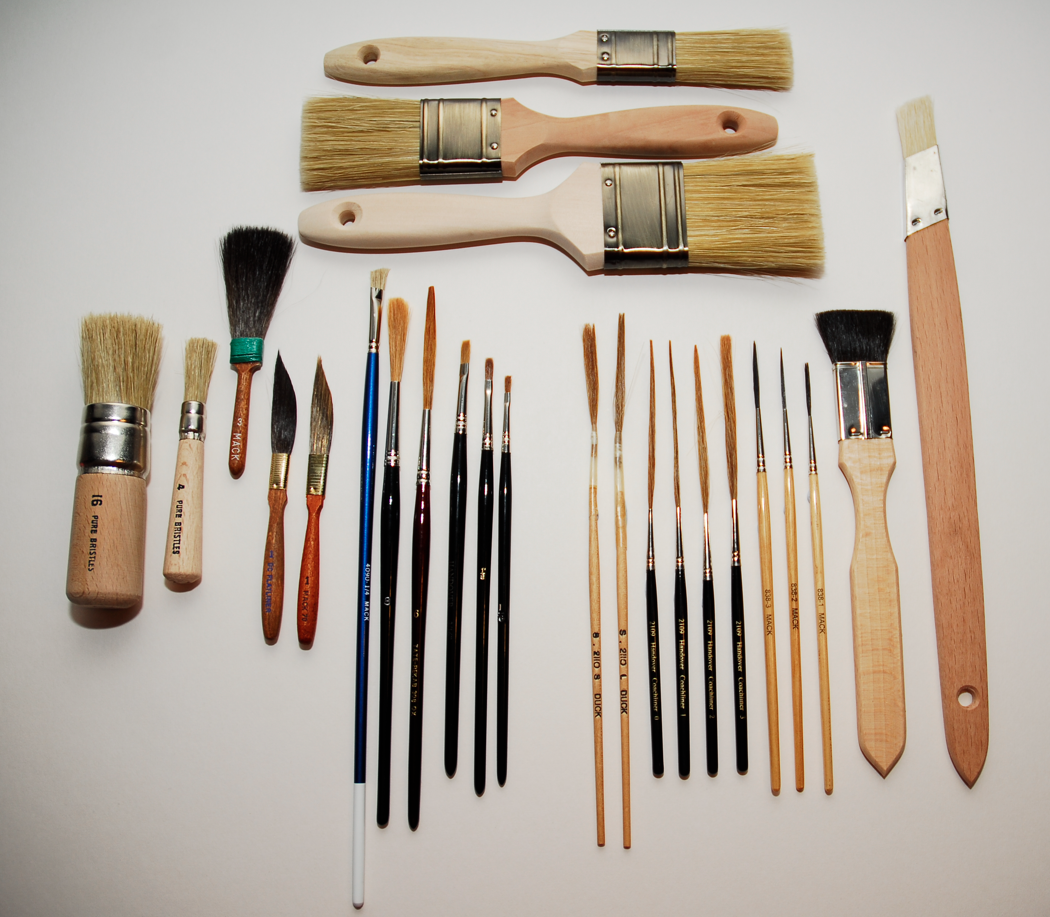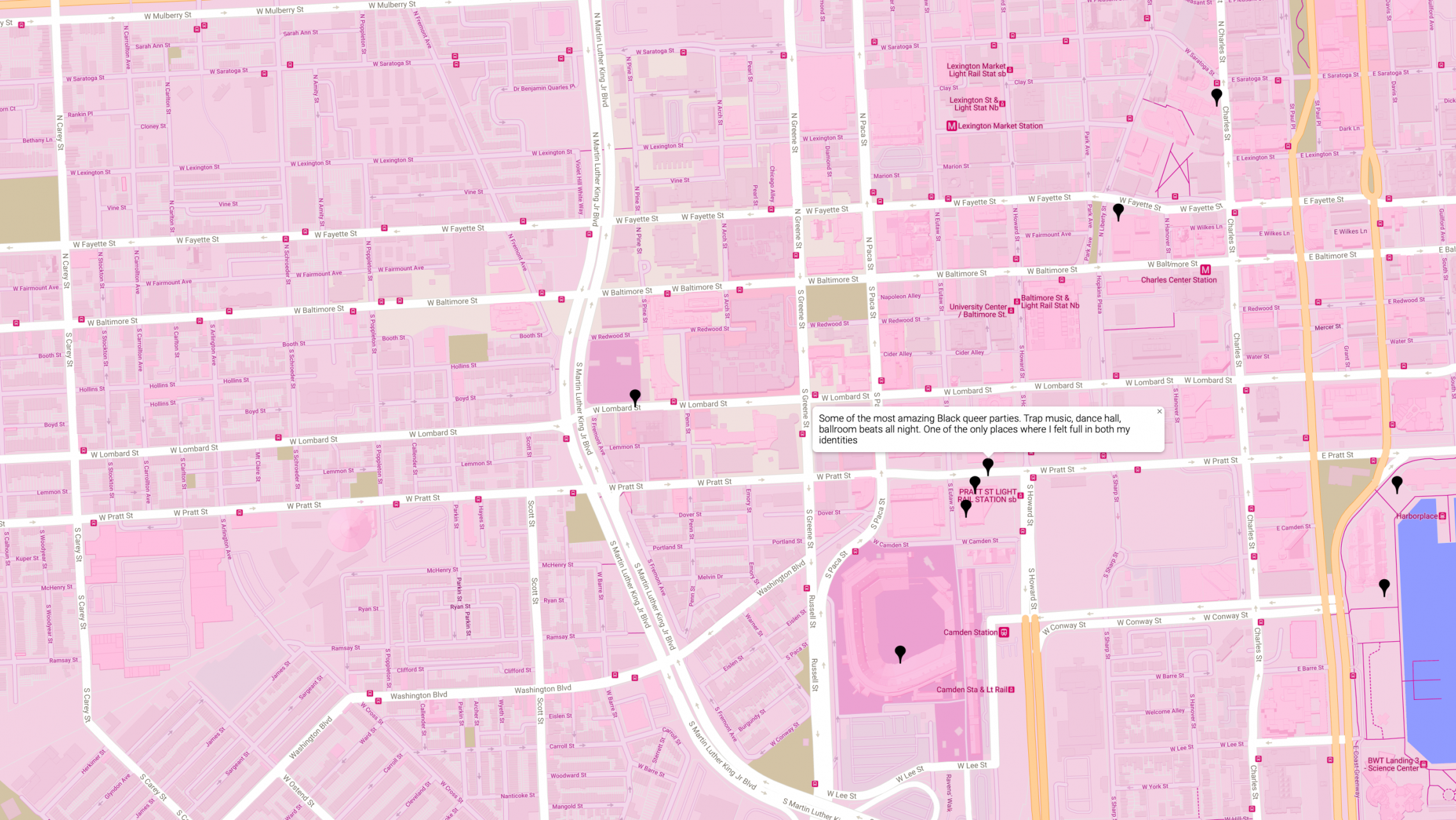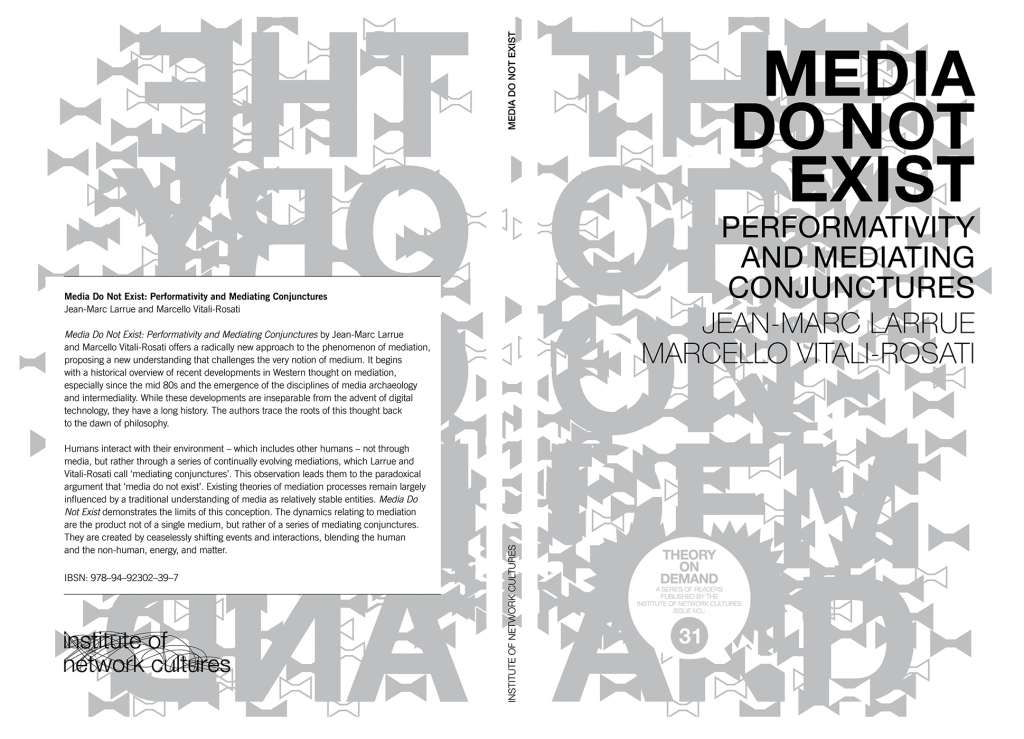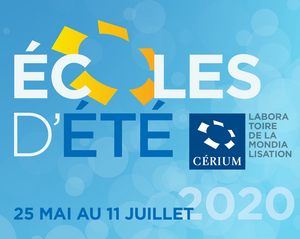"page_data":
{
"lang": "en",
"plausible_domain": "ecrituresnumeriques.ca",
"plausible_api_host": "https://plausible.ecrituresnumeriques.ca",
"id": 2,
"settings_id": 1,
"languages_code": "en",
"site_title": "Canada Research Chair in Digital Textualities",
"site_description": "We are now living in a digital space. This space is made of writing.",
"feature_image": "9ff5bed0-7d2c-40d6-9d3c-bf3dd7fcebaa",
"site_email": "crc.ecrituresnumeriques@gmail.com",
"site_address_html": "<p>Université de Montréal<br>Pavillon Lionel Groulx 8e étage<br>Local C8041<br>3150, rue Jean Brillant<br>Montréal (QC) H3T 1N8 Canada</p>",
"site_phone": "(+1) 514 343 5665",
"site_rights": "© 2024 Canada Research Chair in Digital Textualities. Some rights reserved.",
"site_social_accounts": [
{
"label": "Mastodon",
"icon": "mastodon",
"url": "https://mamot.fr/@ENumeriques"
},
{
"label": "X/Twitter",
"icon": "twitter",
"url": "https://twitter.com/ENumeriques"
},
{
"label": "YouTube",
"icon": "youtube",
"url": "https://www.youtube.com/channel/UC5LIw0dopbSSgqI2zdIi84w"
},
{
"label": "GitLab",
"icon": "gitlab",
"url": "https://gitlab.huma-num.fr/ecrinum/"
},
{
"label": "GitHub",
"icon": "github",
"url": "https://github.com/Ecrituresnumeriques"
},
{
"label": "Instagram",
"icon": "instagram",
"url": "https://www.instagram.com/enumeriques/"
},
{
"label": "Facebook",
"icon": "facebook",
"url": "https://www.facebook.com/Chaire-de-recherche-du-Canada-sur-les-%C3%A9critures-num%C3%A9riques-439923422871073/"
},
{
"label": "Internet Archive",
"url": "https://archive.org/details/@crc_sur_les_critures_num_riques",
"icon": "archive"
},
{
"label": "Papyrus Repository",
"url": "https://papyrus.bib.umontreal.ca/xmlui/browse?type=affiliation&value=Universit%C3%A9%20de%20Montr%C3%A9al.%20Chaire%20de%20recherche%20du%20Canada%20sur%20les%20%C3%A9critures%20num%C3%A9riques",
"icon": "udem"
},
{
"label": "Zotero",
"url": "https://www.zotero.org/groups/critures_numriques/items",
"icon": "zotero"
}
],
"site_menu_main": [
{
"label": "The Chair",
"url": "",
"items": [
{
"label": "About",
"url": "/en/about"
},
{
"label": "Team",
"url": "/en/team"
}
]
},
{
"label": "Activities",
"url": "",
"items": [
{
"label": "Projects",
"url": "/en/projects"
},
{
"label": "Events",
"url": "/en/events"
},
{
"label": "Publications (Zotero)",
"url": "https://www.zotero.org/groups/322999/critures_numriques/library",
"external": true
}
]
},
{
"label": "Topics & Concepts",
"items": [
{
"label": "Research Axis",
"url": "/en/research-axis"
},
{
"label": "Research Objects",
"url": "/en/research-objects"
},
{
"label": "Research Fields",
"url": "/en/research-fields"
},
{
"label": "Key Concepts",
"url": "/en/key-concepts"
}
]
}
],
"site_menu_secondary": [
{
"label": "Français",
"url": "/fr"
}
],
"site_menu_footer": [
{
"label": "About",
"url": "/en/about"
},
{
"label": "Projects",
"url": "/en/projects"
},
{
"label": "Stylo",
"external": true,
"url": "https://stylo.huma-num.fr/"
},
{
"label": "Sens public",
"url": "https://www.sens-public.org/",
"external": true
},
{
"label": "Revue 2.0",
"external": true,
"url": "https://revue20.ecrituresnumeriques.ca/"
},
{
"label": "Greek Anthology",
"url": "https://anthologiegrecque.org",
"external": true
},
{
"label": "Skholé",
"url": "https://skhole.ecrituresnumeriques.ca/"
}
],
"site_header_image_id": "23e109ab-c929-439b-96ba-63c9f822cb92",
"site_long_description": "We are now living in a digital space. This space is made of writing. Our identities are writing – profiles, databases' entries, lines of code –, our actions are writing – from clicks to buying a book or planning a trip – the objects around us are made of writing. The Canada Research Chair on Digital Textualites aims to offer a new reading and a new understanding of this writing that now makes our world. On this site you will find all the projects led by Marcello Vitali-Rosati and his team, the publications of the Chair members and the description of all the theoretical concepts used for our research. ",
"site_zotero_group_id": "322999",
"site_footer_logos": [
{
"directus_files_id": "f096827c-b644-45ed-89a6-e0cb2367006f"
},
{
"directus_files_id": "f53ad38e-86e6-4656-8915-35f890f8d2fd"
},
{
"directus_files_id": "41b61cb3-a410-4a81-a591-f943f30aa775"
},
{
"directus_files_id": "851f10ec-e4ad-4fc2-906c-7385a09af30f"
},
{
"directus_files_id": "f3a97c97-1f47-46a7-a698-4c99b2fc3689"
},
{
"directus_files_id": "0d8cf306-5e8c-438e-973a-d27f553addb4"
}
],
"page": 13,
"perPage": 11,
"next": 14,
"totalItems": 226,
"items": [
{
"slug": "workshop-in-writing-tools-for-social-sciences-and-humanities",
"date_start": "2020-02-06",
"date_end": null,
"time_start": null,
"time_end": null,
"event_type": null,
"id": 1314,
"events_id": 657,
"languages_code": "en",
"title": "Workshop in writing tools for social sciences and humanities",
"content_html": "<img src=\"http://vitalirosati.net/slides/img/wt2.png\" />\r\n<p>The CRC on Digital Textualities, in collaboration with the BLSH team, is delivering two workshops on writing tools for the social sciences and humanities.</p>\r\n<h3>Workshop 1: Writing a text and a bibliography using Markdown and Stylo text editor (level 1)</h3>\r\n<p>This workshop, intended for undergraduate students in classical studies, philosophy or literature, aims to explore the basics of the Markdown language, the Stylo text editor and the free software Pandoc. At the end of the workshop, the student will be able to produce a written work and a bibliography using these tools. A basic knowledge of the bibliographic software Zotero is desirable (see the following video clip before the workshop: <a href=\"https://youtu.be/h08PcxjmNtI\">https://youtu.be/h08PcxjmNtI</a>).</p>\r\n<p><b>Tutors</b>: Marcello Vitali-Rosati, Christian Raschle, and Nino Gabrielli</p>\r\n<p><b>Date and time</b>: February 28, 2020, from 8:30 a.m. to 1:00 p.m.</p>\r\n<p><b>Location</b>: Local 2074</p>\r\n<p><a href=\"https://bib.umontreal.ca/formations/inscription?no=8308\">Registration</a>.</p>\r\n<h3>Workshop 2: Digital Tools in Research and Writing: A Workshop for Graduate Students</h3>\r\n<p>The Canada Research Chair in Digital Textualities and the Social Sciences and Humanities Library offer graduate students a workshop on digital tools in research and writing. This day will provide an opportunity to become familiar with digital tools and good practices in grading, writing and bibliographic management. At the same time, it will highlight the need to organize information semantically in the digital environments of knowledge creation and dissemination. Tools/languages/formats addressed: zotero, markdown, html, xml, teX, pen, pandoc.</p>\r\n<p><b>Tutors</b>: P. Martinolli, N. Sauret, and M. Vitali-Rosati</p>\r\n<p><b>Date and time</b>: Tuesday, March 10, 2020, 9:00 a.m. to 4:30 p.m.</p>\r\n<p><b>Location</b>: Local 3091</p>\r\n<p><b>Bring your own laptop.</b></p>\r\n<p><a href=\"https://bib.umontreal.ca/formations/inscription?no=8258\">Registration</a>.</p>",
"links": null,
"feature_image": null,
"description": "<h2>Bibliothèque des lettres et sciences humaines - UdeM\r\n<br />Samuel Bronfman Pavilion; 3000 Jean-Brillant Avenue\r\n<br />Friday, February 28th and Tuesday, March 10th.</h2>",
"location": null,
"legacy_image": "http://vitalirosati.net/slides/img/wt2.png",
"legacy_slug": "Workshop-in-writing-tools-for-social-sciences-and-humanities",
"legacy_location": null
},
{
"slug": "publication-of-two-crc-s-articles-in-the-latest-issue-of-captures",
"date_start": "2020-01-28",
"date_end": null,
"time_start": null,
"time_end": null,
"event_type": null,
"id": 1322,
"events_id": 661,
"languages_code": "en",
"title": "Publication of two CRC's articles in the latest issue of Captures",
"content_html": "<img src=\"http://revuecaptures.org/sites/default/files/styles/blog_1140x642/public/QTM%204%20copie%202.png?itok=HM9WNFX_\" />\r\n\r\n<p>The Canada Research Chair on Digital Textualities is contributing with two articles to the <a href=\"http://revuecaptures.org/\"><em>Captures</em></a> journal new issue :</p>\r\n\r\n<p>Enrico Agostini Marchese, with Christelle Proulx, publishes an <a href=\"http://revuecaptures.org/node/4225/\">analysis</a> of Louise Drulhes's project <a href=\"http://internet-atlas.net/\">Critical Atlas of Internet</a> ;<p>\r\n\r\n<p>Margot Mellet presents the CRC's project on the <a href=\"https://ecrituresnumeriques.ca/en/Activities/Projects/2016/1/19/Greek-Anthology\">Greek Anthology</a>, showing the richness of this classic work for the understanding of digital literature and publishing, through the concept of <a href=\"http://revuecaptures.org/node/4382/\">palimpsest</a>.</p>.",
"links": [
{
"label": "",
"url": "http://revuecaptures.org/publication/volume-5-num%C3%A9ro-1"
}
],
"feature_image": null,
"description": "<h2>Revue Captures\r\n<br />Vol. 5, n. 1\r\n<br />Special issue « Cartographie actuelle »\r\n</h2>",
"location": null,
"legacy_image": "http://revuecaptures.org/sites/default/files/styles/blog_1140x642/public/QTM%204%20copie%202.png?itok=HM9WNFX_",
"legacy_slug": "Publication-of-two-CRCs-articles-in-the-latest-issue-of-Captures",
"legacy_location": null
},
{
"slug": "a-glass-behind-the-screen-2020",
"date_start": "2020-01-15",
"date_end": null,
"time_start": null,
"time_end": null,
"event_type": null,
"id": 1334,
"events_id": 667,
"languages_code": "en",
"title": "A glass behind the screen - 2020",
"content_html": "<img src=\"http://uvde.fr/wordpress/wp-content/uploads/2019/03/equipe_uvde.jpg\">\r\n<p>\r\n<a href=\"http://uvde.fr/\" target=_blank\"><i>Un verre derrière l’écran</i></a> is a digital culture seminar, orgnaized by Peppe Cavallari (scientific director) and <a href=\"http://www.hetic.net\" target=_blank\"><b>Hétic</b></a> aiming to investigate, from a social and human sciences point of view, the new technologies' issues in contemporary society and culture. It is an opportunity to debate on digital-oriented theories, methods and practices. The purpose is to critically exchange and discuss on these themes in order to let the public opinion be more aware of the digital culture.\r\n</p>\r\n<p>\r\nThese meetings want themselves to be a bridge between human sciences and digital players. The meetings are free and open to everybody and they gather together academics coming form professional and media domains. Every session is live broadcasted. <i>Un verre derrière l'écran</i> is as well present on <a href=\"https://www.facebook.com/unverrederrierelecran/\" target=_blank\"><b>Facebook</b></a> and <a href=\"https://twitter.com/uvde_\" target=_blank\"><b>Twitter</b></a>.\r\n</p>\r\n<p>\r\n<h3>2020 edition calendar</h3>\r\n<ul>\r\n<li>21st January 2020, Hétic : <a href=\"http://uvde.fr/rencontres/facebook-ecole-des-fans/\" target=\"_blank\">« Facebook : l'école des fans. Réflexions sur la connectivité universelle »</a>, with Gérard Wormser.</li>\r\n<li>27th January 2020, Résidence Créatis : <a href=\"http://uvde.fr/rencontres/entreprise-plateforme/\" target=\"_blank\">De l'entreprise à la plateforme. Intelligence artificielle ou stupidité organisée ?</a>, with Luca Paltrinieri.</li>\r\n<li>11th March 2020, Hétic : <a href=\"http://uvde.fr/rencontres/stylo/\" target=\"_blank\">Stylo : une nouvelle façon de penser et d'écrire</a>, with Servanne Monjour.</li>\r\n<li>23rd March 2020, Résidence Créatis : <a href=\"http://uvde.fr/rencontres/uberisation/\" target=\"_blank\"> Ubérisation : une affaire d'État ?</a>, with Laura Létorneau.</li>\r\n<li>30th April 2020, Université Sophia Antipolis : <a href=\"http://uvde.fr/rencontres/entre-direct-et-enregistrement/\" target=\"_blank\">Être ensemble dans le temps. Entre direct et enregistrement</a>, with Peppe Cavallari.</li>\r\n<li>11th May 2020, Hétic : <a href=\"http://uvde.fr/rencontres/cartographier-le-genre/\" target=\"_blank\">Les filles, les garçons, le numérique. Cartographier le genre dans l'espace numérique francophone</a>, with Audrey Baneyx.</li>\r\n<li>18th May 2020, Résidence Créatis : <a href=\"http://uvde.fr/rencontres/economie-du-clic/\" target=\"_blank\">L'économie du clic. Une enquête sur la robotisation du microtravail</a>, with Antonio Casilli.</li>\r\n<li>30 novembre 2020, Hétic : <a href=\"http://uvde.fr/rencontres/cartographier-le-genre\">Les filles, les garçons, le numérique. Cartographier le genre dans l'espace numérique francophone</a> avec Audrey Baneyx.</li>\r\n</ul>\r\n</p>",
"links": [
{
"label": "Website",
"url": "http://uvde.fr/"
}
],
"feature_image": null,
"description": "<h2>Seminar on digital culture</h2>",
"location": null,
"legacy_image": "http://uvde.fr/wordpress/wp-content/uploads/2019/03/equipe_uvde.jpg",
"legacy_slug": "A-glass-behind-the-screen---twozerotwozero",
"legacy_location": null
},
{
"slug": "publication-of-media-do-not-exist-by-marcello-vitali-rosati-et-jean-marc-larrue",
"date_start": "2019-11-02",
"date_end": null,
"time_start": null,
"time_end": null,
"event_type": null,
"id": 1304,
"events_id": 652,
"languages_code": "en",
"title": "Publication of Media Do Not Exist by Marcello Vitali-Rosati et Jean-Marc Larrue",
"content_html": "<img src=\"https://networkcultures.org/wp-content/uploads/2019/10/cover-spread-1024x739.png\">\r\n<p>\r\nMedia Do Not Exist: Performativity and Mediating Conjunctures by Jean-Marc Larrue and Marcello Vitali-Rosati offers a radically new approach to the phenomenon of mediation, proposing a new understanding that challenges the very notion of medium. It begins with a historical overview of recent developments in Western thought on mediation, especially since the mid 80s and the emergence of the disciplines of media archaeology and intermediality. While these developments are inseparable from the advent of digital technology, they have a long history. The authors trace the roots of this thought back to the dawn of philosophy.\r\n</p>\r\n<p>\r\nHumans interact with their environment – which includes other humans – not through media, but rather through a series of continually evolving mediations, which Larrue and Vitali-Rosati call ‘mediating conjunctures’. This observation leads them to the paradoxical argument that ‘media do not exist’. Existing theories of mediation processes remain largely influenced by a traditional understanding of media as relatively stable entities. Media Do Not Exist demonstrates the limits of this conception. The dynamics relating to mediation are the product not of a single medium, but rather of a series of mediating conjunctures. They are created by ceaselessly shifting events and interactions, blending the human and the non-human, energy, and matter.\r\n</p>\r\n<p>\r\n<a href=\"https://networkcultures.org/blog/publication/tod31-media-do-not-exist/\">https://networkcultures.org/blog/publication/tod31-media-do-not-exist/</a>.</p>",
"links": null,
"feature_image": null,
"description": "<h2>Institute of Network Cultures\r\n<br />Amsterdam, 2019\r\n</h2>",
"location": null,
"legacy_image": "https://networkcultures.org/wp-content/uploads/2019/10/cover-spread-1024x739.png",
"legacy_slug": "Publication-of-Media-Do-Not-Exist-by-Marcello-Vitali-Rosati-et-Jean-Marc-Larrue",
"legacy_location": null
},
{
"slug": "stylo-technical-and-editing-support",
"date_start": "2019-10-25",
"date_end": null,
"time_start": null,
"time_end": null,
"event_type": null,
"id": 1306,
"events_id": 653,
"languages_code": "en",
"title": "Stylo: technical and editing support",
"content_html": "<p>The Canada Research Chair on Digital Textualities organizes a weekly session for Stylo users.</p>\r\n<p>These sessions will take place every Thursday morning from 11am to 12pm (Montreal hour) starting from 31st October.</p>\r\n<p>You can participate online to the sessions at the following adress: <a href=\"https://meet.jit.si/stylo\">https://meet.jit.si/stylo</a>.\r\n</p>",
"links": null,
"feature_image": null,
"description": "<h2>Thursday morning, 11am-12pm\r\n<br />Starting from 31st October\r\n<br />One session a week</h2>",
"location": null,
"legacy_image": null,
"legacy_slug": "Stylo-technical-and-editing-support",
"legacy_location": null
},
{
"slug": "crihn-summer-school-in-digital-humanities-2020",
"date_start": "2019-10-21",
"date_end": null,
"time_start": null,
"time_end": null,
"event_type": null,
"id": 1326,
"events_id": 663,
"languages_code": "en",
"title": "CRIHN Summer School in Digital Humanities 2020",
"content_html": "<h3>Description</h3>\r\n<p>The main objective of this fifth summer school is to familiarize students with digital humanities. Field that has widely developed over the last twenty years, and is a very broad field characterized by a strong interdisciplinarity. In the current debate, there is an attempt not to think of the digital humanities as a discipline, but rather as a holistic, transdisciplinary approach, with an attitude and perspective on research that should involve all humanities and social science researchers. Far from being a mere technological development that only impacts the process of research and data visualization in the human and social sciences, the digital humanities lead us to rethink the very meaning of research and, consequently, the entire model of knowledge production and circulation in the age of digital publishing.</p>\r\n\r\n<p>Participants in this summer school will be introduced to the history and critical theories needed to understand this theme, which is revolutionizing disciplines in the humanities, as well as to the practical aspects of the production and exploitation of digitized documents (electronic publishing, exploitation of social networks in an academic context, geographical representations, tools for the analysis and visualization of texts, etc.).</p>\r\n\r\n<p>This course will give students in the social sciences and humanities, regardless of their research topic, access to a field of specialization that is already well established in the rest of North America. Today, new research tools, including methods of accessing and visualizing data, are resonating in many disciplines in the humanities and social sciences under the term digital humanities. They promote a multiplicity of approaches that force the literary to recontextualize, which is also in line with the current reconfiguration of the humanities in general. This course may therefore also be of interest to students in several graduate programs (including literature, information science, history, communication, art history and film studies, philosophy and sociology). Students will be led to reflect on their conceptions of the humanities in an academic environment that is being redefined by new technologies.</p>\r\n\r\n<p>The school is organized in collaboration with the UdeM Faculty of Arts and Science and can be credited at the master's/master's or doctoral level as PLU6113-A (3 credits), with or without evaluations. The school may also be credited for a bachelor's student who has already completed at least 60 credits with an average of more than 3.5. Enrolment is subject to the approval of the director of the program in which the student is enrolled.</p>\r\n\r\n<p>The summer school is organized with the collaboration of the <a href=\"http://crihn.openum.ca\">Centre de recherche sur les humanités numériques</a> and the project <a href=\"https://lqm.uqam.ca\">Littérature québécoise mobile</a>.</p>\r\n\r\n<p><b>Due to the coronavirus situation, the school format is changing this year. It will be given remotely over a period of 3 weeks..</b></p>\r\n\r\n<h3>Objectives</h3>\r\n<p>\r\n<ul>\r\n<li>To familiarize students with the general concepts of the digital humanities;</li>\r\n<li>Identifying the technical/practical aspect of the digital humanities;</li>\r\n<li>To deepen the different types of analytical approaches in order to grasp their complexity;</li>\r\n<li>Apply concepts and analytical approaches to different disciplines in the social sciences and humanities.</li>\r\n</ul>\r\n</p>\r\n<h3>Pedagogy</h3>\r\n<p>The school is structured around a series of lectures in synchronous and asynchronous. Each of the six synchronous speakers will give a 90-minute lecture followed by a period on 45′ devoted to questions and discussions about the required readings and the lecture itself (see program below). The asynchronous lectures will be available for viewing between June 8 and 29.</p>\r\n<h3>Inscription</h3>\r\n<p>The <a href=\"http://cerium.umontreal.ca/etudes/ecoles-dete-2018/humanites-numeriques/\">CERIUM website contains all the information to register for the school.</p>\r\n\r\n<h3>Program</h3>\r\n<p>Marcello Vitali-Rosati (CRC on Digital Textualities, UdeM) video : « <strong><a href=\"http://vitalirosati.net/webinairedh/seminairecyberJustice.mp4\">Introduction aux humanités numériques</a></strong> »</p>\r\n<h3>Synchronous Conference #1, Monday, June 1</h3>\r\n<p>\r\n<ul>\r\n<li>2pm-2.15pm: Michael E. Sinatra, presentation</li>\r\n<li>2.15pm-3.45pm : Martin Grandjean (Histoire, U de Lausanne) — \"Data visualization\"\r\n<ul>\r\n<li>M. Grandjean, « <strong><a href=\"https://halshs.archives-ouvertes.fr/halshs-01610098v2\">Structures complexes et organisations internationales : Analyses de réseaux en histoire. L’exemple de la coopération intellectuelle de la Société des Nations</a></strong> »</li>\r\n</ul>\r\n</li>\r\n<li>3.45pm-4.30pm : Question and discussion time</li>\r\n</ul>\r\n</p>\r\n<h3>Synchronized Lecture #2, Wednesday, June 3</h3>\r\n<p>\r\n<ul>\r\n<li>2pm-2.15pm: Michael E. Sinatra, presentation</li>\r\n<li>2h15pm-3.45pm : Emmanuel Château-Dutier (Digital museology, UdeM) — \"Digital Art History\"\r\n<ul>\r\n<li>J. Drucker, « <strong><a href=\"http://www.tandfonline.com/doi/abs/10.1080/01973762.2013.761106\">Is There a ‘Digital' Art History?</a></strong> »</li>\r\n</ul>\r\n</li>\r\n<li>3.45pm-4.30pm : Question and discussion time</li>\r\n</ul>\r\n</p>\r\n<h3>Synchronized Lecture #3, Monday, June 8</h3>\r\n<p>\r\n<ul>\r\n<li>2pm-2.15pm: Michael E. Sinatra, presentation</li>\r\n<li>14h15-15h45 : Dominic Forest (École biblioéconomie et sciences de l’information, U de Montréal) — « La fouille de texte : Pourquoi et comment »\r\n<ul>\r\n<li>U. Fayyad, G. Piatetsky-Shapiro, et P. Smyth, « <strong><a href=\"https://www.aaai.org/ojs/index.php/aimagazine/article/view/1230/1131\" target=\"_blank\" rel=\"noopener noreferrer\">From data mining to knowledge discovery in databases</a></strong> »</li>\r\n</ul>\r\n</li>\r\n<li>3.45pm-4.30pm : Question and discussion time</li>\r\n</ul>\r\n</p>\r\n<h3>Synchronized Lecture #4, Wednesday, June 10</h3>\r\n<p>\r\n<ul>\r\n<li>2pm-2.15pm: Michael E. Sinatra, presentation</li>\r\n<li>2.15pm-3.45pm : Vincent Larivière (CRC on Scholarly Communication Transformations, UdeM) — « Les transformations des modes de production et de diffusion des connaissances à l’ère numérique »\r\n<ul>\r\n<li>V. Larivière , S. Haustein, et P. Mongeon, « <strong><a href=\"https://doi.org/10.1371/journal.pone.0127502\" target=\"_blank\" rel=\"noopener noreferrer\">The Oligopoly of Academic Publishers in the Digital Era</a></strong> »</li>\r\n</ul>\r\n</li>\r\n<li>3.45pm-4.30pm : Question and discussion time</li>\r\n</ul>\r\n</p>\r\n<h3>Synchronized Lecture #5, Monday, June 15</h3>\r\n<p>\r\n<ul>\r\n<li>2pm-2.15pm: Michael E. Sinatra, presentation</li>\r\n<li>2.15pm-3.45pm: Marcello Vitali-Rosati (Chaire de recherche du Canada sur les écritures numériques, U de Montréal) — « Le concept d’éditorialisation »\r\n<ul>\r\n<li>L. Merzeau, « <strong><a href=\"https://journals.openedition.org/communicationorganisation/4158#xd_co_f=OWMyNDNiYjctMDQ3ZS00MWRhLWJlYTAtNGJiNzQ2ZDRiMjM4~\">Éditorialisation collaborative d’un événement</a></strong> »</li>\r\n</ul>\r\n</li>\r\n<li>3.45pm-4.30pm : Question and discussion time</li>\r\n</ul>\r\n</p>\r\n<h3>Synchronized Lecture #6, Wednesday, June 17</h3>\r\n<p>\r\n<ul>\r\n<li>2pm-2.15pm: Michael E. Sinatra, presentation</li>\r\n<li>2.15pm-3.45pm: Joana Casenave (U de Lille) — « La Text Encoding Initiative et son importance »\r\n<ul>\r\n<li>E. Vanhoutte, « <strong><a href=\"https://books.openedition.org/obp/654\">Defining Electronic Editions: A Historical and Functional Perspective</a></strong> »</li>\r\n</ul>\r\n</li>\r\n<li>3.45pm-4.30pm : Question and discussion time</li>\r\n</ul>\r\n</p>\r\n<h3>Asynchronous conferences</h3>\r\n<p>\r\n<ul>\r\n<li>Marta Boni (Études cinématographiques, U de Montréal) : « Le désir comme tension narrative dans quelques séries télé contemporaines » (<em>conference HN 2020 summer school, available from June 8 for three weeks</em>)</li>\r\n<li>Bruno Bureau (U de Lyon) : « <a href=\"https://crihn.openum.ca/nouvelles/2018/11/21/video-de-la-conference-de-bruno-bureau-universite-de-lyon/\"><strong>Un exemple d’édition critique et analytique: le projet HyperDonat</strong></a> » (CRIHN Lecture)</li>\r\n<li>Jason Camlot (Études anglaises, Concordia U) et Jared Wiercinski et Tomasz Neugebauer (Bibliothèque, Concordia U) : « <a href=\"https://crihn.openum.ca/nouvelles/2019/02/15/video-de-la-seance-de-travail-des-membres-du-crihn-2018-2019-jason-camlot/\"><strong>Le projet SpokenWeb</strong></a> » (CRIHN Lecture)</li>\r\n<li>Dominique Cardon (SciencesPo, Paris) : « <strong><a href=\"https://crihn.openum.ca/nouvelles/2016/04/30/video-de-la-conference-de-dominique-cardon/\">Politique des algorithmes : quatre familles de métriques de l’information sur le web</a></strong> » (CRIHN Lecture)</li>\r\n<li>Olivier Charbonneau (Bibliothèque, Concordia U) : « Droit et accès libre » (<em>conference HN 2020 summer school, available from June 8 for three weeks</em>)</li>\r\n<li>Katherine Cook (Anthropoloigie, U de Montréal) : « Un outillage futur pour retrouver le passé : Archéologie numérique et les méthodologies de décolonisation et d'inclusion » (<em>conference HN 2020 summer school, available from June 8 for three weeks</em>)</li>\r\n<li>Chad Gaffield (Histoire, U d'Ottawa) : « <strong><a href=\"https://crihn.openum.ca/nouvelles/2020/03/10/video-de-la-conference-de-chad-gaffield-u-dottawa/\">Histoire et humanités numériques : Une histoire contestée, un présent fragmenté et un avenir à construire</a></strong> » (CRIHN Lecture)</li>\r\n<li>Olivier Le Deuf (U de Bordeaux Montaigne) et Stéfan Sinclair (McGill U) : « <strong><a href=\"https://crihn.openum.ca/nouvelles/2018/06/09/video-de-la-table-ronde-perspective-histoirique-des-humanites-numeriques/\">Une perspective historique des humanités numériques / digitales</a></strong> » (CRIHN Lecture)</li>\r\n<li>Sophie Marcotte (Études françaises, Concordia U) : « Éditer des manuscrits littéraires : le cas de Gabrielle Roy » (<em>conference HN 2020 summer school, available from June 8 for three weeks</em>)</li>\r\n<li>Dominique Trudel (Communication, U du Québec à Chicoutimi) : « Les humanités numériques au prisme de la remédiation » (<em>conference HN 2020 summer school, available from June 8 for three weeks</em>)</li>\r\n</ul>\r\n</p>",
"links": null,
"feature_image": null,
"description": "<h2>Virtual Summer School\r\n<br />1st June - 17th June 2020</h2>",
"location": null,
"legacy_image": "https://michaelsinatra.openum.ca/files/sites/35/2020/01/csm_Timbres-ecoles-ete-RGB-2020_fa1e3c850e.jpg",
"legacy_slug": "CRIHN-Summer-School-in-Digital-Humanities-twozerotwozero",
"legacy_location": null
},
{
"slug": "symposium-digital-humanities-reception-and-transmission-of-marcello-vitali-rosati-s-works",
"date_start": "2019-10-19",
"date_end": null,
"time_start": null,
"time_end": null,
"event_type": null,
"id": 1302,
"events_id": 651,
"languages_code": "en",
"title": "Symposium Digital Humanities - Reception and transmission of Marcello Vitali-Rosati's works",
"content_html": "<img src=\"https://i.imgur.com/ckq0alt.png\" />\r\n<p>For the second edition of the symposium Digital Humanities, the Maison des Sciences de l'Homme en Brétagne welcomes Marcello Vitali-Rosait, professor at the department of French Literatures at the University of Montreal and chairholder of the Canada Research Chair on Digital Textualities. He is one of the most important thinker of the editorialization, subject that constitutes the theoretical axis of this day</p>\r\n<p>Defined as the ensemble of the dinamics whose objective is to produce and to structure the digital space, editorialization mobilizes many concepts that are at the heart of Marcello Vitali-Rosati's works : authority, editorial practices, digital identity, virtuality and knowledge dissemination on the Web.\r\n</p>\r\n<p>\r\nMarcello Vitali-Rosati will give as well the keynote conference: <strong>Thinking editorialization: for a general theory of the digital space</strong>.</p>\r\n<p>For further informations, please visite the seminar <a href=\"https://www.mshb.fr/medias_mshb/reception-et-transmission-des-travaux-de-marcello-vitali-rosati-1/6397\">website</a>.\r\n<iframe src=\"https://archive.org/embed/mshb-marcello-vitali-rosati\" width=\"640\" height=\"480\" frameborder=\"0\" webkitallowfullscreen=\"true\" mozallowfullscreen=\"true\" allowfullscreen></iframe>",
"links": null,
"feature_image": null,
"description": "<h2>Maison des Sciences de l'Homme de Brétagne\r\n<br />2, avenue Gaston Berger, Rennes\r\n<br />20th March 2019</h2>",
"location": null,
"legacy_image": "https://i.imgur.com/ckq0alt.png",
"legacy_slug": "Symposium-Digital-Humanities---Reception-and-transmission-of-Marcello-Vitali-Rosatis-works",
"legacy_location": null
},
{
"slug": "pierre-levy-s-seminar-on-ieml",
"date_start": "2019-09-24",
"date_end": null,
"time_start": null,
"time_end": null,
"event_type": null,
"id": 1310,
"events_id": 655,
"languages_code": "en",
"title": "Pierre Lévy's seminar on IEML",
"content_html": "<p>IEML est une langue artificielle conçue pour être simultanément manipulable de manière optimale par les ordinateurs et capable d'exprimer les nuances sémantiques et pragmatiques des langues naturelles. Ce métalangage peut notamment servir à la gestion des connaissances et à l'adressage sémantique des données numériques.\r\n</p>\r\n<p>Les séances seront diffusées en direct à l'adresse : <a href=\"https://meet.jit.si/ieml\">https://meet.jit.si/ieml</a>.</p>\r\n\r\n<h3>2nd Class</h3>\r\n<p>\r\n<a href=\"https://archive.org/details/ieml_2019-1009_seance2_premierePartie\">First part</a> — <a href=\"https://archive.org/details/iemlon201910091951\">Second part</a>.\r\n</p>\r\n<h3>3rd Class</h3>\r\n<p>\r\n<a href=\"https://archive.org/details/iemlon201910161833\">First part</a> — <a href=\"https://archive.org/details/iemlon201910161859\">Second part</a> — <a href=\"https://archive.org/details/iemlon201910162000\">Third part</a>.\r\n</p>\r\n<h3>4th Class</h4>\r\n<p>\r\n<a href=\"https://archive.org/details/iemlon201910301717\">First part</a> — <a href=\"https://archive.org/details/iemlon201910301833\">Second part</a> — <a href=\"https://archive.org/details/iemlon201910301951\">Third part</a>.\r\n</p>",
"links": null,
"feature_image": null,
"description": "<h2>University of Montreal\r\n<br />CRIHN, local C-8132\r\n<div class=\"dateHeure\">1pm, 2nd October-4th December 2019</div>",
"location": null,
"legacy_image": "https://upload.wikimedia.org/wikipedia/commons/c/c4/Pierre_L%C3%A9vy.jpg",
"legacy_slug": "Pierre-Levys-seminar-on-IEML",
"legacy_location": null
},
{
"slug": "carla-canullo-s-lecture-the-translations-of-space",
"date_start": "2019-07-01",
"date_end": null,
"time_start": null,
"time_end": null,
"event_type": null,
"id": 1300,
"events_id": 650,
"languages_code": "en",
"title": "Carla Canullo's lecture: The translations of space",
"content_html": "<img src=\"https://0.academia-photos.com/2074141/933712/1169200/s200_carla.canullo.jpg\" />\r\n<p>Can we translate the space? It is, of course, a paradox, because the space in which such is \"not\" and, therefore, is not translatable. However, this translation represents the real challenge of our time, because by digital we are translating (even \"transport\") space \"elsewhere\". This translation is not a reproduction. On the contrary, it produces and invents new spaces by also asking us to question the very meaning of space, especially about its \"number\". Should we still talk about space or will we have to do with spaces instead? And how do digital spaces give us real, concrete spaces - the space we live in?</p>\r\n<p>This lecture is part of the program <strong>Canada-Italy Innovation Award 2019</strong> of the Canadian embassy</p>",
"links": null,
"feature_image": null,
"description": "<h2>University of Montreal\r\n<br />Carrefours des Arts et des Sciences, local C-1017-02\r\n<div class=\"dateHeure\">2.30pm, 24th September 2019</div>",
"location": null,
"legacy_image": "https://0.academia-photos.com/2074141/933712/1169200/s200_carla.canullo.jpg",
"legacy_slug": "Carla-Canullos-lecture-The-translations-of-space",
"legacy_location": null
},
{
"slug": "international-seminar-publishing-sphere",
"date_start": "2019-06-20",
"date_end": null,
"time_start": null,
"time_end": null,
"event_type": null,
"id": 1296,
"events_id": 648,
"languages_code": "en",
"title": "International Seminar Publishing Sphere",
"content_html": "<img src=\"http://publishingsphere.ecrituresnumeriques.ca/wp-content/uploads/2019/05/afficheSansTypo-11th-copy.jpg\" />\r\n<p>In May 2019, the second edition of Publishing Sphere will take over the public sphere of Montreal. In the continuity with the first edition in Berlin (<a href=\"https://www.hkw.de/en/programm/projekte/2017/internationaler_literaturpreis_2017/publishing_sphere_1/publishing_sphere.php\">https://www.hkw.de/en/programm/projekte/2017/internationaler_literaturpreis_2017/publishing_sphere_1/publishing_sphere.php</a>),we’ll continue the project of experimenting writing, publishing and performances forms capable of opening new spaces of expression, exchange and creation as well as of renovating the modalities of public spaces building.</p>\r\n\r\n<p>In order to do so, we call editors, writers, artists, designers, commoneers, archivists and participants from various communities to invent alternative ways to take over the Publishing Sphere by proposing devices, apparati, texts, supports, protocols, architectures and action that renew the idea of publishing itself , till redefine its sense and political impact.</p>\r\n\r\n<p>As atelier, performance, co-writing, public speaking, booksprint, forum, wiki, fish-bowl or pow-wow, we hope for propositions exploring inscription, writing and publishing as dynamics opening new spaces. Publishing Sphere will try to put in motion a dialogue between different communities, with an editorial gesture (curation) meeting reflection and creation</p>",
"links": [
{
"label": "Website",
"url": "http://publishingsphere.digitaltextualities.ca/en"
}
],
"feature_image": null,
"description": "<h2>Montreal\r\n<div class=\"dateHeure\">23rd-25th May 2019</div></h2>",
"location": null,
"legacy_image": "http://publishingsphere.ecrituresnumeriques.ca/wp-content/uploads/2019/05/afficheSansTypo-11th-copy.jpg",
"legacy_slug": "International-Seminar-Publishing-Sphere",
"legacy_location": null
},
{
"slug": "2019-canadian-society-for-digital-humanities-congress",
"date_start": "2019-06-20",
"date_end": null,
"time_start": null,
"time_end": null,
"event_type": null,
"id": 1298,
"events_id": 649,
"languages_code": "en",
"title": "2019 Canadian Society for Digital Humanities congress",
"content_html": "<p>The Canadian Society for Digital Humanities (http://csdh-schn.org/) invites scholars, practitioners, and graduate students to submit proposals for papers, panels, and digital demonstrations for its annual meeting, which will be held at the 2019 Congress of the Social Sciences and Humanities, University of British Columbia, from June 2-4 (https://www.congress2019.ca/). We encourage submissions on all topics relating to both theory and practice in the evolving field of the digital humanities. The opening plenary will be delivered by Professor Deb Verhoeven. The conference will close with a plenary delivered by Victor Temprano. Deb Verhoeven, currently Associate Dean of Engagement and Innovation at the University of Technology Sydney, will be joining the University of Alberta as a Canada 150 Chair in April 2019. Deb has been called Australia’s “most innovative academic,” and is a leading scholar in the field of gender and cultural informatics. Victor Temprano is a programmer and developer engaged in many activist projects. He runs Mapster, a Vancouver-based company specializing in interactive maps. In 2015, Victor created Native-Land.ca, a website which visualizes Indigenous territories, languages, and treaties, originally in Canada and now increasingly worldwide. Native-Land.ca has achieved notoriety through social media and is frequently used as a teaching tool. 2019 Program committee: Barbara Bordalejo (program chair), Megan Meredith Lobay (local organizer), Kim Martin, Susan Brown, Lai-Tze Fan, François Dominic Laramée, and Luis Meneses.</p>\r\n<p>Several chair members will participate with presentation. Look at the <a href=\"https://www.congress2019.ca/sites/default/files/association/2019/05/255_-_csdhschn-2019-05-03-final.pdf\">program</a> for further information.</p>",
"links": [
{
"label": "",
"url": "https://www.congress2019.ca/associations/255"
}
],
"feature_image": null,
"description": "<h2>University of British Columbia\r\n<br />Vancouver, British Columbia\r\n<div class=\"dateHeure\">2nd-4th June 2019</div></h2>",
"location": null,
"legacy_image": "https://www.congress2019.ca/sites/default/files/congress_logo.png",
"legacy_slug": "twozeroonenine-Canadian-Society-for-Digital-Humanities-congress",
"legacy_location": null
}
]
}









